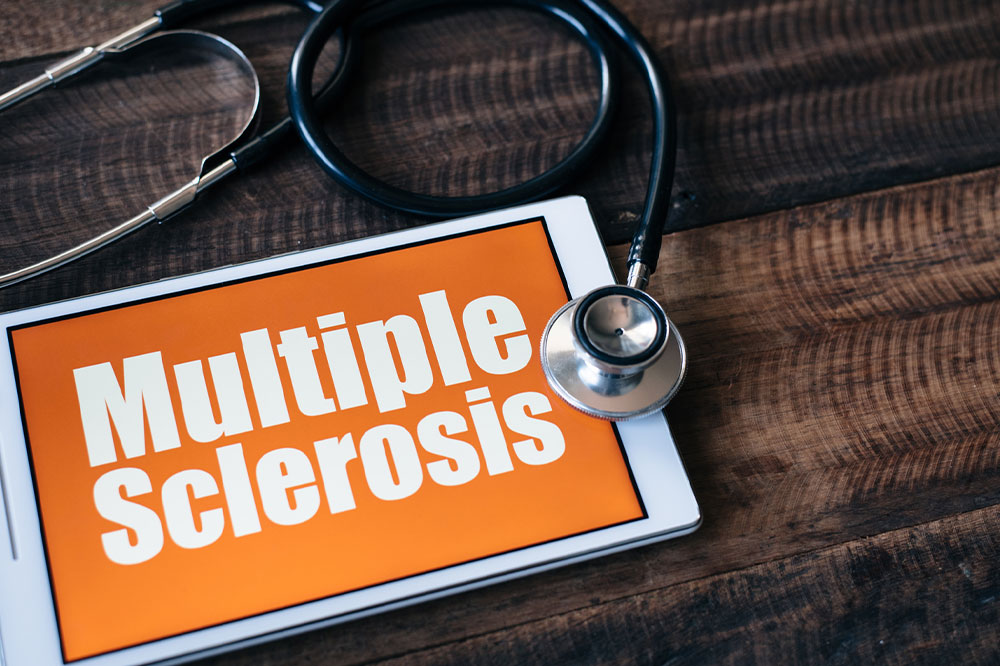
11 Warning Signs of Multiple Sclerosis
Multiple sclerosis (MS) is a rare autoimmune health disorder known to affect 1 in 1000 people. It causes the immune system to attack the central nervous system disrupting communication between the brain and other parts of the body. It is a progressive condition that slowly diminishes the function of the spinal cord and the brain over time. As a result, the symptoms and early warning signs become visible gradually over time.
A tingling sensation or numbness
Multiple sclerosis affects the central nervous system and begins to develop slowly by causing damage to the nerves. As a result, one may experience unusual and unpleasant sensations such as numbness or a tingling sensation. The numbness and tingling are generally experienced in the feet or hands. Sometimes, the sensation can be felt in the face or when moving the neck or the head. The numbness or tingling sensation tends to come and go. Generally, this is one of the initial signs of relapsing multiple sclerosis—a form of the condition where symptoms or flare-ups are followed by periods of remission.
Chronic pain
Almost 50 percent of people with multiple sclerosis report chronic pain as one of the significant early symptoms of multiple sclerosis. The pain is experienced due to two reasons. First, the pain is caused by damage to the central nervous system and is known as neurogenic pain. Second, other symptoms and treatment options for the condition can also cause pain. This type is pain is known as nociceptive pain.
Fatigue
One of the most common early signs of multiple sclerosis is fatigue. The fatigue brought on by the condition is quite different from what normal tiredness feels like. It is often described as an overwhelming feeling of exhaustion without any specific cause. The fatigue is often categorized as primary or secondary fatigue. Primary fatigue arises due to damage in the brain and spinal cord, whereas secondary fatigue results from other MS symptoms such as chronic pain or sleeplessness.
Vision problems
Another common early symptom of multiple sclerosis is vision-related issues. One of the biggest warning signs is experiencing pain when moving the eyes. The pain and blurred vision can last for a few days when dealing with the condition. Another vision-related symptom is optic neuritis; here, the optic nerve becomes inflamed, leading to issues like double vision, blurred vision, or even a loss of vision.
Difficulty maintaining balance
Multiple sclerosis can affect a person’s sense of equilibrium. It directly affects their ability to balance. This often leaves them with dizziness or lightheadedness. This usually happens when they try to stand up after sitting or lying down for a while. The dizziness can last for a couple of days. It invariably makes it difficult to balance and walk, changing the person’s gait.
Tightness in the torso
A lesser-known consequence of multiple sclerosis is the damage caused to nerves in the thoracic spinal cord. The thoracic spine is the portion in the middle of the spine, starting from the base of the neck and ending just right below the ribs. The nerve damage in this part of the spine makes one feel tightness in the torso. The sensation is similar to having a tight belt or band wrapped around the torso.
Stiffness and muscle spasms
Nearly half the people with MS experience stiffness and muscle spasms as early symptoms. Those with relapsing multiple sclerosis also experience episodes of muscle stiffness during flare-ups. Generally called spasticity, this early warning sign of MS presents itself in the form of painful or uncontrollable jerking movements of the legs or arms. It may also cause back pain. The intensity of this symptom can range from mild, such as muscle tightness, to severe, turning into painful spasms.
Dysfunctional bladder or bowel
Another early warning sign of MS is a dysfunctional bowel or bladder. So, the frequency of going to the restroom increases. Despite regular urination, a person with MS may still have the urge to go back to the bathroom. In some cases, there are problems related to bowel movements as well. One may experience diarrhea, constipation, or loss of control of bowel control movement. Some of the common telltale signs of bladder control issues include:
- Strong urge to urinate
- Frequent urination
- Inability to urinate, i.e., bladder retention
- Inability to hold in urine
Effects on emotional or mental health
The various debilitating symptoms of multiple sclerosis can heavily impact a person’s emotional health. The long-term effect of coping with the flare-ups of relapsing multiple sclerosis can lead to social isolation and issues in personal relationships. Chronic pain can cause irritability and mood swings. Clinical depression is also observed to be one of the early symptoms of MS. Some people also experience the pseudobulbar effect. In this, the person experiences short bouts of uncontrollable laughing or crying.
Changes in cognitive abilities
People with MS are also observed to have a slow decline in their cognitive abilities. These problems are usually associated with problems with memory and thinking. The most common change in cognitive ability is a slowdown of information processing. For example, a person may need to read a single line several times before they figure out what is written. Other warning signs include difficulty in finding words, issues with multi-tasking, and a loss of short-term memory.
Difficulty in speaking or swallowing
It is estimated that about a third of the people with MS experience difficulty swallowing or speaking. Swallowing issues are often referred to by health professionals as dysphagia. In some cases, the problems with swallowing may come and go, as it happens due to flare-ups in the case of relapsing multiple sclerosis.
These early warning signs can indicate the development of multiple sclerosis. Those genetically predisposed to developing multiple sclerosis must keep an eye out for these early symptoms and consult a health practitioner.


